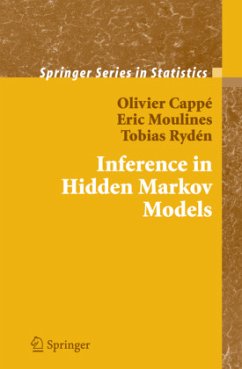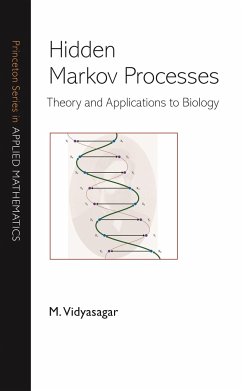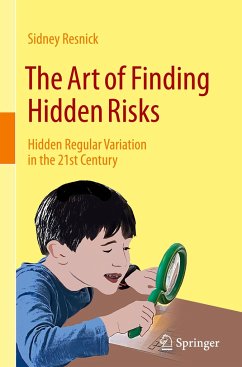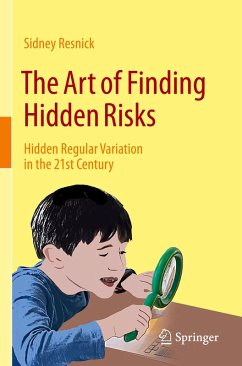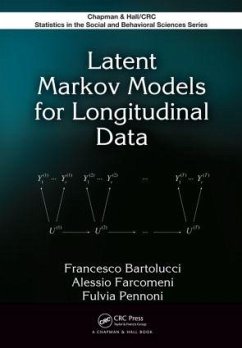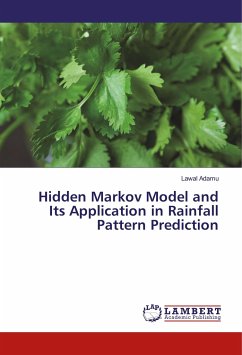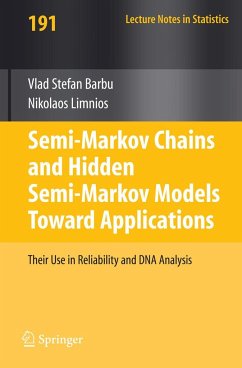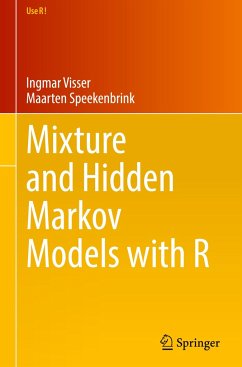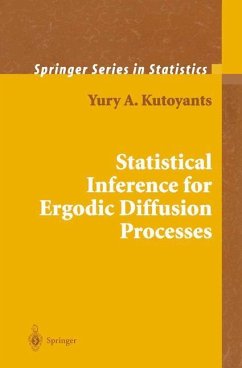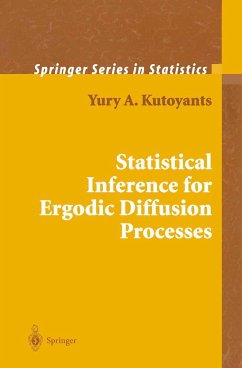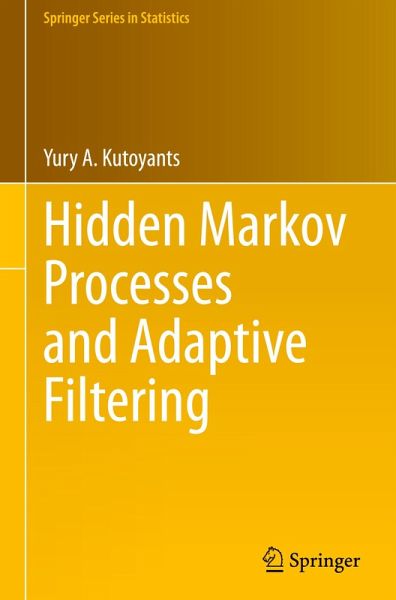
Hidden Markov Processes and Adaptive Filtering

PAYBACK Punkte
68 °P sammeln!
This book is devoted to the problem of adaptive filtering for partially observed systems depending on unknown parameters. Adaptive filters are proposed for a wide variety of models: Gaussian and conditionally Gaussian linear models of diffusion processes; some nonlinear models; telegraph signals in white Gaussian noise (all in continuous time); and autoregressive processes observed in white noise (discrete time). The properties of the estimators and adaptive filters are described in the asymptotics of small noise or large samples. The parameter estimators and adaptive filters have a recursive ...
This book is devoted to the problem of adaptive filtering for partially observed systems depending on unknown parameters. Adaptive filters are proposed for a wide variety of models: Gaussian and conditionally Gaussian linear models of diffusion processes; some nonlinear models; telegraph signals in white Gaussian noise (all in continuous time); and autoregressive processes observed in white noise (discrete time). The properties of the estimators and adaptive filters are described in the asymptotics of small noise or large samples. The parameter estimators and adaptive filters have a recursive structure which makes their numerical realization relatively simple. The question of the asymptotic efficiency of the adaptive filters is also discussed.
Readers will learn how to construct Le Cam s One-step MLE for all these models and how this estimator can be transformed into an asymptotically efficient estimator process which has a recursive structure.
The last chapter covers several applications of the developed method to such problems as localization of fixed and moving sources on the plane by observations registered by K detectors, estimation of a signal in noise, identification of a security price process, change point problems for partially observed systems, and approximation of the solution of BSDEs.
Adaptive filters are presented for the simplest one-dimensional observations and state equations, known initial values, non-correlated noises, etc. However, the proposed constructions can be extended to a wider class of models, and the One-step MLE-processes can be used in many other problems where the recursive evolution of estimators is an important property.
The book will be useful for students of filtering theory, both undergraduates (discrete time models) and postgraduates (continuous time models). The method described, preliminary estimator + One-step MLE-process + adaptive filter, will also be of interest to engineers and researchers working with partially observed models.
Readers will learn how to construct Le Cam s One-step MLE for all these models and how this estimator can be transformed into an asymptotically efficient estimator process which has a recursive structure.
The last chapter covers several applications of the developed method to such problems as localization of fixed and moving sources on the plane by observations registered by K detectors, estimation of a signal in noise, identification of a security price process, change point problems for partially observed systems, and approximation of the solution of BSDEs.
Adaptive filters are presented for the simplest one-dimensional observations and state equations, known initial values, non-correlated noises, etc. However, the proposed constructions can be extended to a wider class of models, and the One-step MLE-processes can be used in many other problems where the recursive evolution of estimators is an important property.
The book will be useful for students of filtering theory, both undergraduates (discrete time models) and postgraduates (continuous time models). The method described, preliminary estimator + One-step MLE-process + adaptive filter, will also be of interest to engineers and researchers working with partially observed models.



